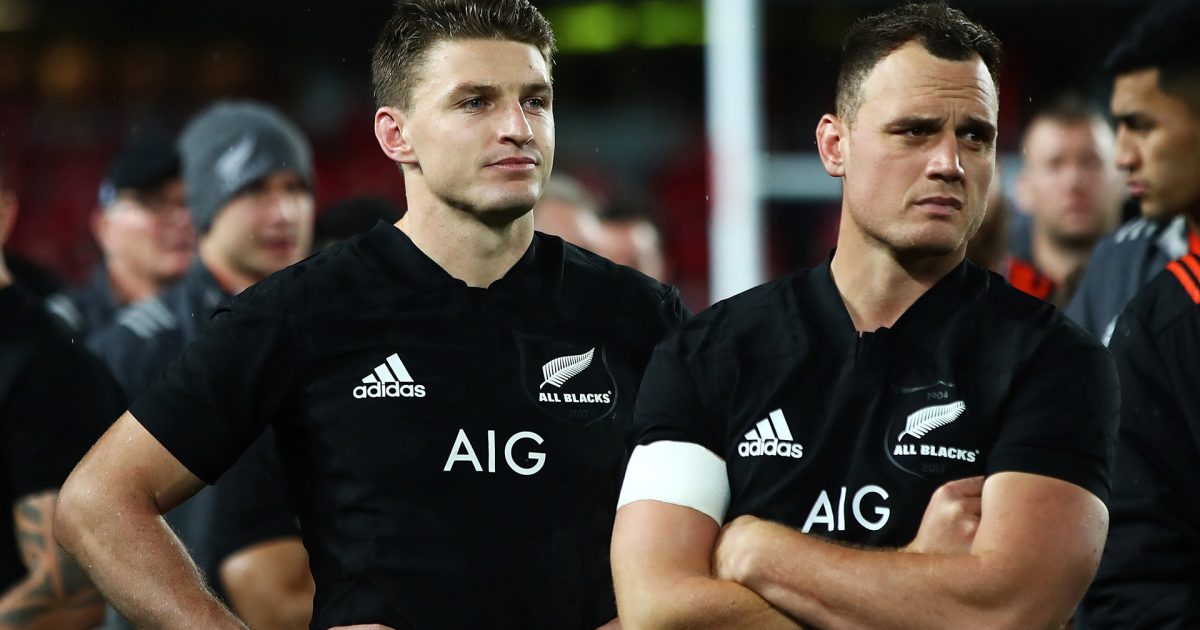Israel Dagg names his chosen heir to the All Blacks No 10 jersey

The impending exodus of All Blacks following this year’s Rugby World Cup has New Zealand rugby fans particularly nervous about the future of the infamous black No 10 jersey, with Richie Mo’unga and Beauden Barrett both tiers above their competition and both heading to Japan in 2024.
The All Blacks took three players who can play flyhalf to Europe last year; Mo’unga, Barrett and Stephen Perofeta. The latter is primarily a fullback but given his experience in the All Black camp and brief showings at flyhalf for the Blues, Perofeta is widely considered a leading candidate to take up the mantle in 2024.
The wild card in the mix is the Chiefs’ superstar Damian McKenzie, who is yet to reveal his plans beyond the World Cup.
Talking on SENZ radio, former All Black fullback Israel Dagg named his top three candidates to succeed Mo’unga and excluded McKenzie from the mix.
“I’d take Perofeta,” Dagg said. “He’d be my man that I’d build my team around.
“He’s been in that environment for a year now, he knows what it is. Has played limited time at 10, but I’d take Perofeta.”
For his second option, Dagg opted for 20-year-old Highlanders rookie Cameron Millar. The young playmaker excelled in the New Zealand U20’s side last year and continued his fine form for Otago in the NPC.
“We haven’t seen him but I’ve talked about him a wee bit,” Dagg said of Millar. “I expect he’s going to have a standout season.
“Might be a wee bit early but get him in there, get him in the environment building for that future.”
Dagg was torn when selecting his third player, with the decision being split between the Chiefs’ Josh Ioane and the Crusaders’ prodigy Fergus Burke.
“It’s either Josh Ioane or (Crusader) Fergus Burke for me. (Both) have been given opportunities at a Super level, have shown good signs that they could potentially kick on.
“(But) if I’m going to pick one, I’m going to pick Josh Ioane.”
Burke joins the Chiefs’ Bryn Gatland as omissions from Dagg’s list who will likely look to put their hat in the mix for a promotion post-World Cup. Brett Cameron’s return to New Zealand shores will draw the eyes of selectors as well, Sir Steve Hansen and co selected the now 26-year-old for a lone All Blacks cap in 2018.
19-year-old Taha Kemara joins Cameron Millar as a young gun to watch in the future. The 19-year-old will have a year of stewardship under Richie Mo’unga before he sees any consistent opportunities at Super Rugby level, which will come during Mo’unga’s three-year sabbatical.










































































I'd take Ruben Love over any of them, even though he's primarily a Fullback, he's definitely worth developing in both.
Totally agree. Pure class.